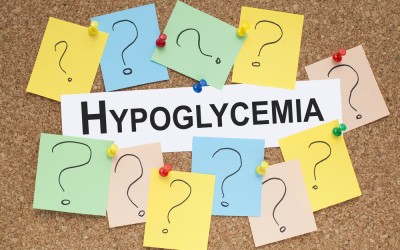some risk factors and possible treatment strategies for hypoglycemia unawareness.
Risk factors
Long-standing type 1 diabetes. Reduced awareness of hypoglycemia is common among people who have long-standing insulin-dependent diabetes. Many of those who’ve had diagnosed diabetes for 15 to 20 years report having lost their ability to perceive low blood glucoses and to often failing to treat and prevent severe hypoglycemia.
Severe hypoglycemia is an episode in which the person with diabetes is unable to treat him or herself and needs the assistance of another person. This includes prompting by a relative or friend to drink juice or eat.
Being an older adult and having type 2 diabetes. There also have been an increasing number of hypoglycemia unawareness episodes in those with type 2 diabetes; adults older than 65 seem to be most at risk.
Treatment options
Strict avoidance of hypoglycemia. Strict avoidance of hypoglycemia for several weeks to months can restore at least partial awareness of warning symptoms. Strategies for avoiding hypoglycemia when you have hypoglycemia unawareness or don’t experience the warning symptoms include:
- Aim for a higher blood glucose target
- Try to more accurately count carbohydrates
- Avoid overcorrection or stacking of insulin doses
- Test your blood glucose and adjust your insulin dose more frequently
- Consider blood glucose awareness training education programs to help you learn to identify new symptoms and improve recognition
- Consider a personal continuous glucose monitor (CGM) that sounds an alarm when your glucose gets too low
- Consider a service dog that can recognize low blood glucose













